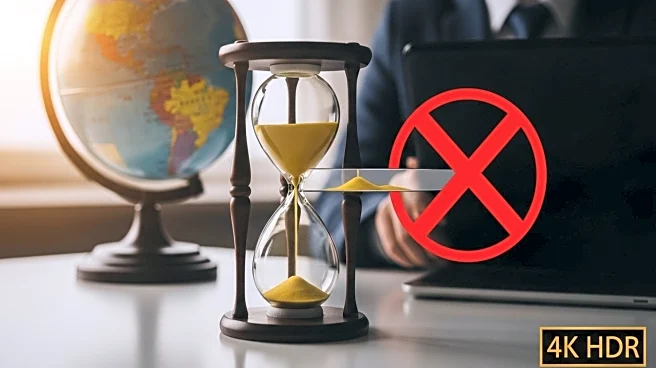What is the story about?
What's Happening?
The Department of Homeland Security (DHS) has announced a proposed rule to limit the duration of stay for international students in the United States to a maximum of four years. This proposal, set to be published soon, aims to address what the DHS describes as 'visa abuse' by foreign students who remain in the U.S. indefinitely by continuously enrolling in educational programs. The rule would require regular assessments by the DHS to ensure proper oversight of these individuals. The proposal also includes changes for foreign journalists, limiting their initial stay to 240 days with the possibility of an extension. The DHS argues that this measure will reduce safety risks and financial burdens on U.S. taxpayers, while also ensuring that U.S. citizens are not disadvantaged.
Why It's Important?
The proposed rule could significantly impact U.S. higher education institutions, which often rely on the higher tuition fees paid by international students. A reduction in international student enrollment could lead to financial challenges for these institutions. Additionally, the rule may deter international students from choosing the U.S. as a study destination, potentially affecting the country's global competitiveness in education and innovation. Critics argue that the rule could harm American economies and reduce cultural exchange opportunities. The proposal reflects broader immigration policy changes under the Trump administration, emphasizing stricter oversight and control over foreign nationals in the U.S.
What's Next?
If the rule is finalized, it will require international students and other affected visa holders to comply with the new duration limits, potentially altering their educational and career plans in the U.S. Educational institutions may need to adjust their recruitment strategies and financial planning to accommodate potential changes in international student enrollment. Stakeholders, including universities and advocacy groups, are likely to respond with feedback during the rule's public comment period, which could influence the final version of the regulation.















